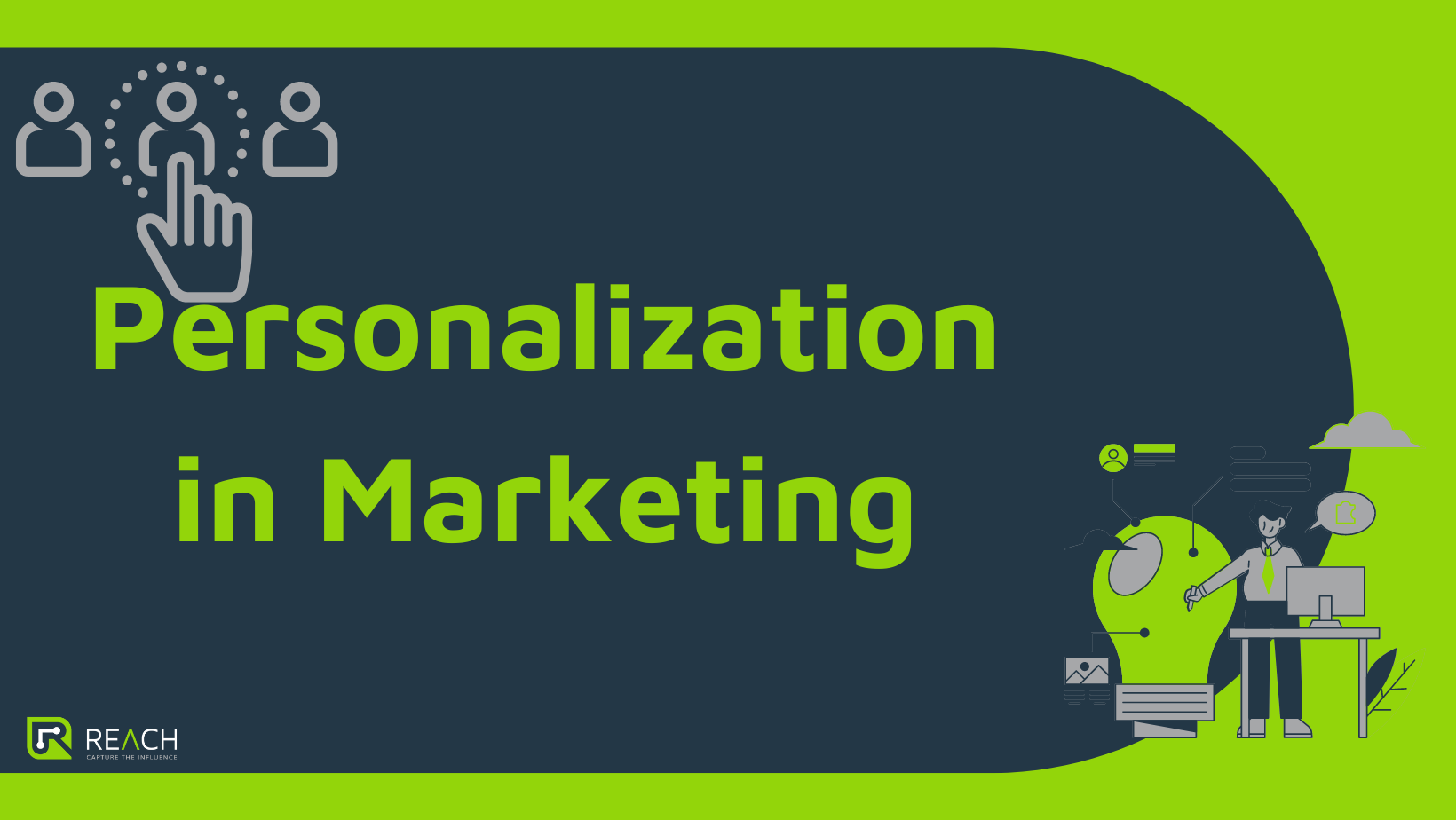In today’s fast-paced digital landscape, successful marketing strategies have evolved beyond generic messaging and one-size-fits-all approaches. The key to winning over customers lies in personalization, which tailors marketing efforts to individual needs and preferences. In this article, we’ll delve into the significance of personalization in marketing and explore effective strategies for creating customized experiences that drive engagement and loyalty.
Understanding the Importance of Personalization
- Connecting on a Personal Level: Personalization empowers businesses to deliver tailored experiences that resonate with individual customers. By offering relevant content, products, and recommendations, companies can enhance the overall customer experience. When customers feel valued and understood, they are more likely to engage with marketing messages, promotions, and content. Personalization captures attention, builds trust, and fosters a deeper connection with customers, leading to increased engagement and interaction.
- Fostering Customer Loyalty: When businesses provide personalized experiences, they meet customer expectations more effectively. A sense of loyalty develops when customers perceive that a brand genuinely cares about their preferences and needs. By offering personalized offers and recommendations, businesses can boost the likelihood of conversions and repeat sales.
Tailoring Content and Messaging
- Understanding Your Audience: The foundation of successful personalization lies in gaining a deep understanding of the target audience’s demographics, interests, and pain points. Conducting market research, analyzing customer data, and engaging in direct conversations provide valuable insights. This knowledge guides the crafting of personalized content.
- Resonating with Your Audience: Adapt your messaging to reflect the values, aspirations, and pain points of your audience segments. Demonstrate empathy and understanding through personalized messages. Leverage technology to deliver dynamic content that adapts to individual users, such as personalized website elements, email subject lines, or product recommendations based on user behavior or preferences. Utilize automation and artificial intelligence tools to scale personalization efforts.
- Feedback and Iteration: Collect feedback from your audience to understand their response to your content. Use surveys, social media listening, or direct communication to gather insights. Continually refine and iterate your content strategy based on the feedback received.
Measuring the Success of Personalization
- Defining Objectives: Clearly define your objectives for personalization. Are you aiming to increase engagement, improve conversion rates, enhance customer satisfaction, or achieve another specific goal? Having clear objectives will guide your measurement efforts.
- Relevant Metrics: Determine the metrics that align with your objectives and are influenced by personalization. Examples include click-through rates, conversion rates, time spent on page, bounce rates, customer satisfaction scores, or revenue generated.
- Implementing Analytics Tools: Utilize marketing automation platforms and analytics tools to track and measure the performance of personalized content. Set up conversion tracking, event tracking, or custom tracking parameters to capture relevant data.
- Segmentation Analysis: Segment your audience based on the personalization criteria used and compare the performance of personalized content to non-personalized or generic content. This allows you to identify the impact of personalization on specific audience segments or behaviors.
- Drawing Insights: Analyze the data collected from tracking tools to gain insights into the performance of personalized content. Look for patterns, trends, or significant differences in metrics between personalized and non-personalized content.
- Regular Reporting: Develop regular reporting practices to track and communicate the success of personalized content. Create dashboards or reports that showcase key metrics, performance trends, and the impact of personalization on business objectives.
Conclusion
In summary, personalization matters in marketing because it enhances the customer experience, increases engagement and loyalty, and improves conversion rates, among other benefits. By embracing personalization, businesses can build stronger customer relationships and achieve better results in their marketing efforts.
FAQs (Frequently Asked Questions)
- Why is personalization crucial in marketing? Personalization is crucial because it allows businesses to cater to individual customer needs, enhancing the overall experience and driving engagement.
- How can businesses implement personalization effectively? Businesses can implement personalization effectively by understanding their audience, tailoring content and messaging, and using analytics to measure performance.
- What metrics should businesses track for personalized marketing efforts? Relevant metrics include click-through rates, conversion rates, time spent on page, bounce rates, customer satisfaction scores, and revenue generated.
- Can personalization lead to customer loyalty? Yes, personalization can foster customer loyalty by making customers feel valued and understood, leading to repeat purchases and long-term relationships.
- How can influencers contribute to personalized marketing? Influencers can play a significant role in personalized marketing by creating authentic and relatable content that resonates with their followers’ interests and preferences.
With a platform like Reach you can easily manage and scale your influencer campaigns to get the most out of your budget and time. Sign up today or set up a demo to learn more!



Leave A Comment